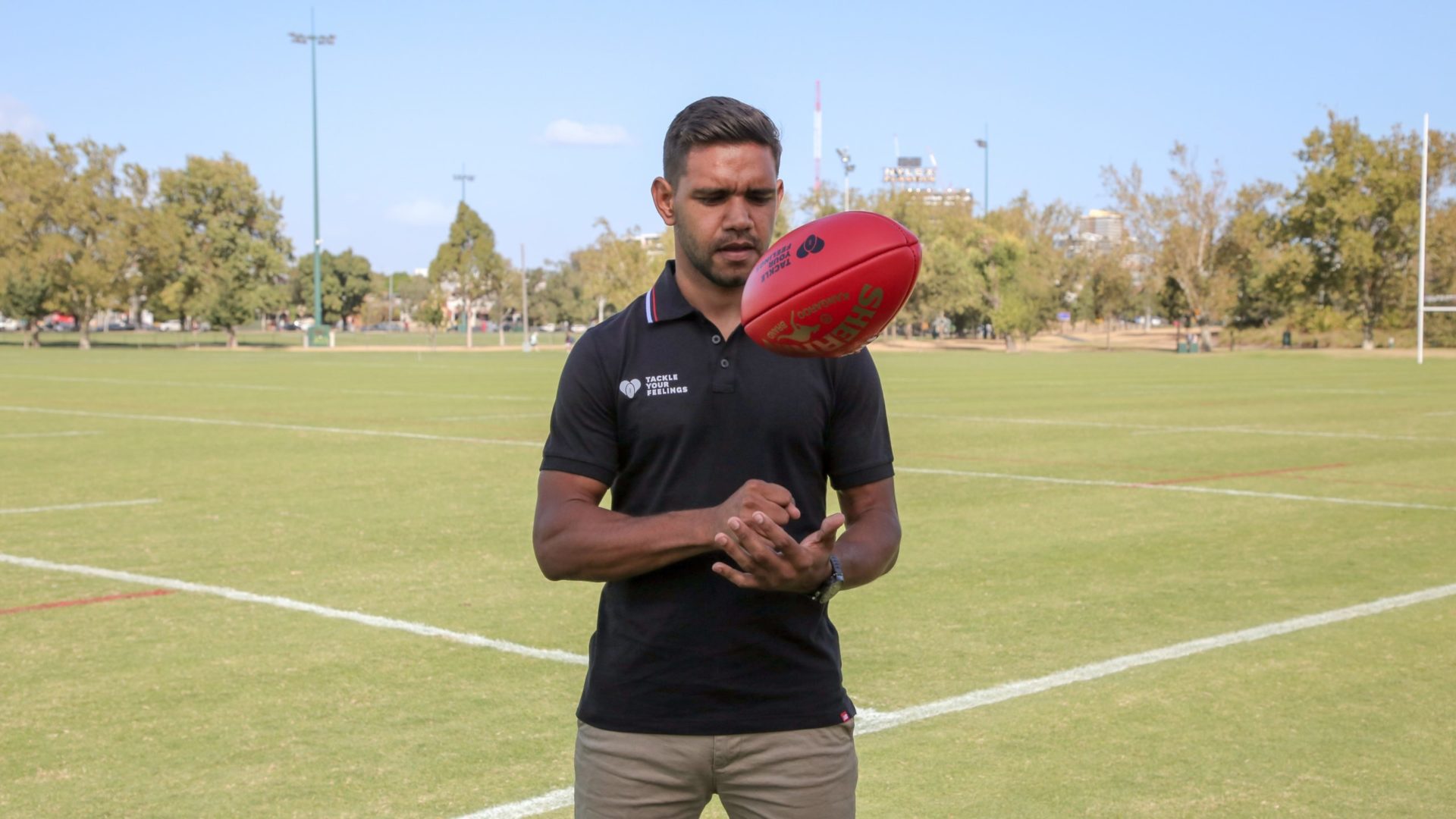Words by Neville Jetta (Melbourne)
Neville Jetta – Tackle Your Feelings
When you’re in rehab as a footballer it can be a very lonely place.
Naturally you want to play but when your body doesn’t allow that it can be challenging.
Starting in 2018 and continuing through the 2019 season I had an unfortunate run with injury.
In the space of a few weeks I had surgery on my right knee and left shoulder after Melbourne’s 2018 finals campaign.
I knew, having those two surgeries, I was going to spend most of our pre-season in rehab and so I tried to prepare beforehand as much as possible.
But four games into the 2019 season, I did the exact same injury on my opposite knee.
I played one more game but the injury wasn’t getting any better so I had another round of surgery and missed the next 12 weeks – I didn’t play again in 2019.
Having been inducted into Melbourne’s leadership group ahead of 2019, it was challenging being injured and on the sidelines. As a senior player and leader at the club you want to be able to have an impact on and off the field.
I became so frustrated with my injuries my wife, Sam, and those around me began noticing changes in me.
Early on in my time with the rehab group I became insular and reserved. Sam found I became frustrated easily and would carry the burden myself.
But over time I learnt to lean on my support networks more than I ever have before.
Knowing I had a support network around me, helped me to be present and engaged for Sam and our two kids.
Long-term injuries and time in the rehab group will always present its challenges.
You’re on a different schedule to the rest of the group – you might start earlier or finish later depending on when the oval and gym is available.
Players will often say that being in rehab is isolating, and it is, but in recent seasons clubs have tried different tasks to keep players involved in what the main group is doing.
That would be my key takeaway from my time spent in rehab.
It’s important to find a passion away from football, but also a way to stay involved with the team.
I’d often sit in the coaches box during a game to gain a different perspective on football or run a segment of a meeting. Those little tasks helped me stay involved with the club and I tried to support my teammates even though I couldn’t be on the field helping them.
When you do have a long-term injury and are separated from the group, it’s important to know the support available to you.
For me, my teammates and the coaches were critical in ensuring I felt supported and included.
From there, Melbourne’s Player Development Manager (PDM) Shannon Byrnes, Indigenous Liaison Officer Matthew Whelan and our club psychologist Dave Williams acted as sounding boards any time I had questions or concerns about where I was at. It’s easy to doubt your ability to return to the field and I would often ask myself, ‘Am I ever going to get back to my best?’
However, there is only so much you can do during your time in rehab and patience is important.
Set yourself milestones so that you’re not just looking at the finish line, but rather you’re achieving tasks along the way to keep you motivated and on track.
It’s easier said than done, and as a professional athlete I recognise how fortunate I am to have access to the physiotherapists and rehab coordinators at the club.
When you’re playing local football at a community or amateur level it can be challenging to keep your mind focussed on football when your priorities might lie elsewhere with your family and income.
It’s important to recognise what you’re going through, the challenges you’re facing and identifying the relevant support networks.
With my surgeries now behind me I want to be able to return to training and complete as many sessions as possible.
I’m a big believer that my training resembles my season and so to be able to compete and be a consistent trainer over the next six months will hopefully help me going into the early parts of the season.
I’m trying not to look too far past the pre-season.
I want to know that I’ve put in enough work to hold me in good stead.
Since my injuries I’ve stripped everything right back.
I want to be there for my kids as a father and to Sam as a husband so we can enjoy the highs of what’s coming in our life.
I also want to be to there to support my family in some of the challenges we may face.
Need Support? If you know someone who requires urgent assistance or support, please contact:
Suicide call back service: 1300 659 467
Lifeline: 13 11 14
Kids Helpline: 1800 551 800
Emergency: 000
Support for AFL Players: If you are a current or past AFL Player and would like to know more about our specialised wellbeing and mental health services please contact the AFL Players’ Association at wellbeing@aflplayers.com.au or Tel. 03-8651 4300 (Mon to Fri, 9am – 5pm).
Click here to read our disclaimer.


